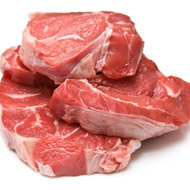‘Meat testing’ press release criticised by RUMA

RUMA said the press release fails to acknowledge the strict regulation of all antibiotic use in farm animals.
RUMA has strongly criticised a press release by the Grand National sponsor Randox Health for making ‘inaccurate and misleading’ statements about the use of antibiotics in farm animals.
Randox issued the press release last week, saying it tested meat for traces of antibiotics before serving it from the Aintree kitchens to around 12,000 people. The Ladymoor Farm Beef was given the ‘all-clear’ by Randox’s Food Diagnostic division after being tested using its Biochip Array Technology.
According to its website, Randox offers ‘tools for the screening of antimicrobials, growth promoting hormones and drugs of abuse in animals and produce’. The company said it wanted to raise awareness of antibiotic resistance and is ‘working closely with the industry to promote a responsible approach to antibiotic use in farm animals’.
However, RUMA, which promotes the responsible use of medicines in farm animals, said the press release fails to acknowledge the strict regulation of all antibiotic use in farm animals, and the withdrawal periods observed to avoid the presence of antibiotics in meat, milk and other products. It also confuses residue testing with the separate issue of antibiotic resistance.
RUMA secretary John Fitzgerald referred to the press release as “an ill-conceived PR stunt” and called it “irresponsible and incorrect” to imply consumers would be harmed by antibiotics from any farm produce, when residue levels have long been tightly controlled.
“Regarding the altogether different issue of antibiotic resistance, its relationship to the testing of meat for residues is bewildering,” he added. “Antibiotic resistance is complex enough already; it should be a moral duty to clarify the facts rather than cause further confusion or, worse still, seek to use it for economic gain.”
Randox was also chastised for attributing a rise in human prescriptions of ‘last resort’ drugs to farm animals, when RUMA says farm animal sales of all antibiotics, including high priority drugs, have fallen.
RUMA said it had contacted Randox for urgent clarification.



 RCVS Knowledge has welcomed Professor Peter Cockcroft as editor-in-chief for Veterinary Evidence.
RCVS Knowledge has welcomed Professor Peter Cockcroft as editor-in-chief for Veterinary Evidence.